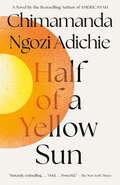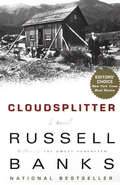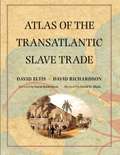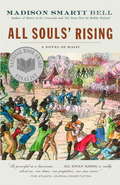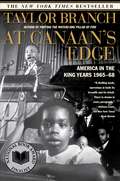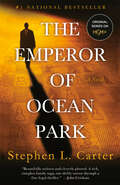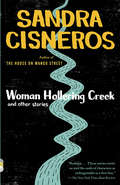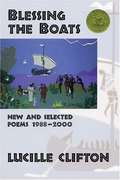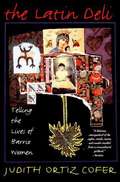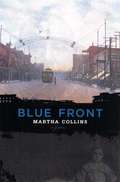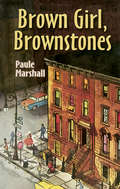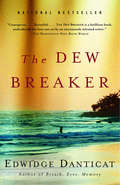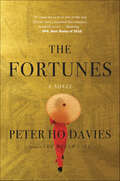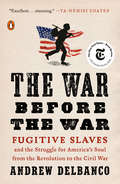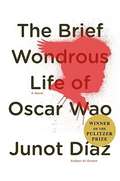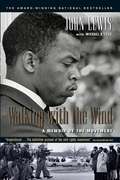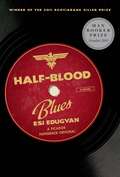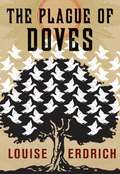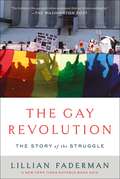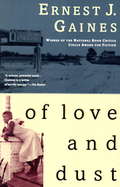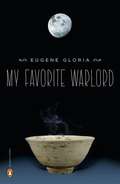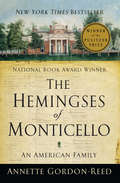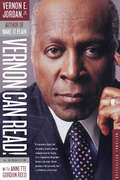Special Collections
Anisfield-Wolf Book Award
Description: The Anisfield-Wolf Book Award recognizes books that make important contributions to understanding racism and help develop an appreciation of the rich diversity of human cultures. #award
- Table View
- List View
Half of a Yellow Sun
by Chimamanda Ngozi AdichieNATIONAL BOOK CRITICS CIRCLE AWARD FINALIST • From the award-winning, bestselling author of Americanah and We Should All Be Feminists—a haunting story of love and war. • Recipient of the Women&’s Prize for Fiction &“Winner of Winners&” award.With effortless grace, celebrated author Chimamanda Ngozi Adichie illuminates a seminal moment in modern African history: Biafra's impassioned struggle to establish an independent republic in southeastern Nigeria during the late 1960s. We experience this tumultuous decade alongside five unforgettable characters: Ugwu, a thirteen-year-old houseboy who works for Odenigbo, a university professor full of revolutionary zeal; Olanna, the professor&’s beautiful young mistress who has abandoned her life in Lagos for a dusty town and her lover&’s charm; and Richard, a shy young Englishman infatuated with Olanna&’s willful twin sister Kainene. Half of a Yellow Sun is a tremendously evocative novel of the promise, hope, and disappointment of the Biafran war.
Cloudsplitter
by Russell BanksA triumph of the imagination and a masterpiece of modern storytelling, Cloudsplitter is narrated by the enigmatic Owen Brown, last surviving son of America's most famous and still controversial political terrorist and martyr, John Brown. Deeply researched, brilliantly plotted, and peopled with a cast of unforgettable characters both historical and wholly invented, Cloudsplitter is dazzling in its re-creation of the political and social landscape of our history during the years before the Civil War, when slavery was tearing the country apart. But within this broader scope, Russell Banks has given us a riveting, suspenseful, heartbreaking narrative filled with intimate scenes of domestic life, of violence and action in battle, of romance and familial life and death that make the reader feel in astonishing ways what it is like to be alive in that time.
Atlas of the Transatlantic Slave Trade
by David Eltis and David Richardson and James G. Basker and David Blight and David Brion DavisBetween 1501 and 1867, the transatlantic slave trade claimed an estimated 12. 5 million Africans and involved almost every country with an Atlantic coastline. In this extraordinary book, two leading historians have created the first comprehensive, up-to-date atlas on this 350-year history of kidnapping and coercion.
It features nearly 200 maps, especially created for the volume, that explore every detail of the African slave traffic to the New World. The atlas is based on an online database (www. slavevoyages. org) with records on nearly 35,000 slaving voyages--roughly 80 percent of all such voyages ever made.
Using maps, David Eltis and David Richardson show which nations participated in the slave trade, where the ships involved were outfitted, where the captives boarded ship, and where they were landed in the Americas, as well as the experience of the transatlantic voyage and the geographic dimensions of the eventual abolition of the traffic.
Accompanying the maps are illustrations and contemporary literary selections, including poems, letters, and diary entries, intended to enhance readers' understanding of the human story underlying the trade from its inception to its end.
This groundbreaking work provides the fullest possible picture of the extent and inhumanity of one of the largest forced migrations in history.
All Souls' Rising
by Madison Smartt BellIn this first installment of his epic Haitian trilogy, Madison Smartt Bell brings to life a decisive moment in the history of race, class, and colonialism.
The slave uprising in Haiti was a momentous contribution to the tide of revolution that swept over the Western world at the end of the 1700s.
A brutal rebellion that strove to overturn a vicious system of slavery, the uprising successfully transformed Haiti from a European colony to the world's first Black republic.
From the center of this horrific maelstrom, the heroic figure of Toussaint Louverture-a loyal, literate slave and both a devout Catholic and Vodouisant-emerges as the man who will take the merciless fires of violence and vengeance and forge a revolutionary war fueled by liberty and equality.
Bell assembles a kaleidoscopic portrait of this seminal movement through a tableau of characters that encompass black, white, male, female, rich, poor, free and enslaved.
Pulsing with brilliant detail, All Soul's Rising provides a visceral sense of the pain, terror, confusion, and triumph of revolution.
Generations of Captivity
by Ira BerlinIra Berlin traces the history of African-American slavery in the United States from its beginnings in the seventeenth century to its fiery demise nearly three hundred years later.
Most Americans, black and white, have a singular vision of slavery, one fixed in the mid-nineteenth century when most American slaves grew cotton, resided in the deep South, and subscribed to Christianity. Here, however, Berlin offers a dynamic vision, a major reinterpretation in which slaves and their owners continually renegotiated the terms of captivity. Slavery was thus made and remade by successive generations of Africans and African Americans who lived through settlement and adaptation, plantation life, economic transformations, revolution, forced migration, war, and ultimately, emancipation.
Berlin's understanding of the processes that continually transformed the lives of slaves makes Generations of Captivity essential reading for anyone interested in the evolution of antebellum America. Connecting the "Charter Generation" to the development of Atlantic society in the seventeenth century, the "Plantation Generation" to the reconstruction of colonial society in the eighteenth century, the "Revolutionary Generation" to the Age of Revolutions, and the "Migration Generation" to American expansionism in the nineteenth century, Berlin integrates the history of slavery into the larger story of American life. He demonstrates how enslaved black people, by adapting to changing circumstances, prepared for the moment when they could seize liberty and declare themselves the "Freedom Generation."
This epic story, told by a master historian, provides a rich understanding of the experience of African-American slaves, an experience that continues to mobilize American thought and passions today.
At Canaan's Edge
by Taylor BranchAt Canaan's Edge concludes America in the King Years, a three-volume history that will endure as a masterpiece of storytelling on American race, violence, and democracy. Pulitzer Prize-winner and bestselling author Taylor Branch makes clear in this magisterial account of the civil rights movement that Martin Luther King, Jr., earned a place next to James Madison and Abraham Lincoln in the pantheon of American history.
In At Canaan's Edge, King and his movement stand at the zenith of America's defining story, one decade into an epic struggle for the promises of democracy. Branch opens with the authorities' violent suppression of a voting-rights march in Alabama on March 7, 1965. The quest to cross Selma's Edmund Pettus Bridge engages the conscience of the world, strains the civil rights coalition, and embroils King in negotiations with all three branches of the U.S. government.
The marches from Selma coincide with the first landing of large U.S. combat units in South Vietnam. The escalation of the war severs the cooperation of King and President Lyndon Johnson after a collaboration that culminated in the landmark 1965 Voting Rights Act.
After Selma, young pilgrims led by Stokely Carmichael take the movement into adjacent Lowndes County, Alabama, where not a single member of the black majority has tried to vote in the twentieth century. Freedom workers are murdered, but sharecroppers learn to read, dare to vote, and build their own political party. Carmichael leaves in frustration to proclaim his famous black power doctrine, taking the local panther ballot symbol to become an icon of armed rebellion.
Also after Selma, King takes nonviolence into Northern urban ghettoes. Integrated marches through Chicago expose hatreds and fears no less virulent than the Mississippi Klan's, but King's 1966 settlement with Mayor Richard Daley does not gain the kind of national response that generated victories from Birmingham and Selma. We watch King overrule his advisers to bring all his eloquence into dissent from the Vietnam War. We watch King make an embattled decision to concentrate his next campaign on a positive compact to address poverty.
We reach Memphis, the garbage workers' strike, and King's assassination. Parting the Waters provided an unsurpassed portrait of King's rise to greatness, beginning with the 1955 Montgomery bus boycott and ending with the assassination of President John F. Kennedy in 1963. In Pillar of Fire, theologians and college students braved the dangerous Mississippi Freedom Summer of 1964 as Malcolm X raised a militant new voice for racial separatism.
The Civil Rights Act of 1964 outlawed segregation by race and mandated equal opportunity for women. From the pinnacle of winning the Nobel Peace Prize, King willed himself back to "the valley" of jail in his daunting Selma campaign. At Canaan's Edge portrays King at the height of his moral power even as his worldly power is waning. It shows why his fidelity to freedom and nonviolence makes him a defining figure long beyond his brilliant life and violent end.
The Emperor of Ocean Park
by Stephen L. CarterIn his triumphant fictional debut, Stephen Carter combines a large-scale, riveting novel of suspense with the saga of a unique family.
The Emperor of Ocean Park is set in two privileged worlds: the upper crust African American society of the Eastern seabord--families who summer at Martha's Vineyard--and the inner circle of an Ivy League law school.
Talcott Garland is a successful law professor, devoted father, and husband of a beautiful and ambitious woman, whose future desires may threaten the family he holds so dear.
When Talcott's father, Judge Oliver Garland, a disgraced former Supreme Court nominee, is found dead under suspicious circumstances, Talcott wonders if he may have been murdered.
Guided by the elements of a mysterious puzzle that his father left, Talcott must risk his marriage, his career and even his life in his quest for justice.
Superbly written and filled with memorable characters, The Emperor of Ocean Park is both a stunning literary achievement and a grand literary entertainment.
Woman Hollering Creek
by Sandra CisnerosA collection of stories, whose characters give voice to the vibrant and varied life on both sides of the Mexican border. The women in these stories offer tales of pure discovery, filled with moments of infinite and intimate wisdom.
Blessing the Boats
by Lucille CliftonThis long-awaited collection from one of the most distinguished poets working today includes new poems written during the past four years as well as generous selections from previous collections.
Winner of the National Book Award
The Latin Deli
by Judith Ortiz CoferA community transplanted from what they now view as an island paradise, these Puerto Rican families yearn for the colors and tastes of their former home. As they carve out lives as Americans, their days are filled with drama, success, and sometimes tragedy.
Blue front
by Martha CollinsA stunning account of racism, mob violence, and cultural responsibility as rendered by the poet Martha Collins the victim hanged, though not on a tree, this was not the country, they used a steel arch with electric lights, and later a lamppost, this was a modern event, the trees were not involved. --from "Blue Front"
Martha Collins's father, as a five-year-old, sold fruit outside the Blue Front Restaurant in Cairo, Illinois, in 1909. What he witnessed there, with 10,000 participants, is shocking.
In Blue Front, Collins describes the brutal lynching of a black man and, as an afterthought, a white man, both of them left to the mercilessness of the spectators.
The poems patch together an arresting array of evidence--newspaper articles, census data, legal history, postcards, photographs, and Collins's speculations about her father's own experience.
The resulting work, part lyric and part narrative, is a bold investigation into hate, mob mentality, culpability, and what it means to be white in a country still haunted by its violently racist history.
Brown Girl, Brownstones
by Mary Helen Washington and Edwidge Danticat and Paule Marshallhis beloved coming-of-age story set in Brooklyn during the Depression and World War II follows the life of Selina Boyce, a daughter of Barbadians immigrants. Her mother craves the American Dream while her father longs for his island birthplace. The new foreword by contemporary Caribbean author Edwidge Danticat explores the novel's themes of identity, sexuality and values as well as Selina's struggle against the racism and poverty surrounding her.
The Dew Breaker
by Edwidge DanticatFrom the universally acclaimed author of Breath, Eyes, Memory and Krik? Krak!, a brilliant, deeply moving work of fiction that explores the world of a "dew breaker"--a torturer--a man whose brutal crimes in the country of his birth lie hidden beneath his new American reality.
We meet him late in his life. He is a quiet man, a husband and father, a hardworking barber, a kindly landlord to the men who live in a basement apartment in his home. He is a fixture in his Brooklyn neighborhood, recognizable by the terrifying scar on his face.
As the book unfolds, moving seamlessly between Haiti in the 1960s and New York City today, we enter the lives of those around him: his devoted wife and rebellious daughter; his sometimes unsuspecting, sometimes apprehensive neighbors, tenants, and clients. And we meet some of his victims.
In the book's powerful denouement, we return to the Haiti of the dew breaker's past, to his last, desperate act of violence, and to his first encounter with the woman who will offer him a form of redemption--albeit imperfect--that will change him forever.
The Dew Breaker is a book of interconnected lives--a book of love, remorse, and hope; of rebellions both personal and political; of the compromises we often make in order to move beyond the most intimate brushes with history.
Unforgettable, deeply resonant,The Dew Breaker proves once more that in Edwidge Danticat we have a major American writer.
The Fortunes
by Peter Ho DaviesAn NPR Best Book of the Year: “The most honest, unflinching, cathartically biting novel I’ve read about the Chinese American experience.” —Celeste Ng, #1 New York Times–bestselling author of Our Missing HeartsWinner, Anisfield-Wolf Book Award * Winner, Chautauqua Prize *Finalist, Dayton Literary Peace Prize * A New York Times Notable Book * A Publishers Weekly Best Book of the YearSly, funny, intelligent, and artfully structured, The Fortunes recasts American history through the lives of Chinese Americans and reimagines the multigenerational novel through the fractures of immigrant family experience.Inhabiting four lives—a railroad baron’s valet who unwittingly ignites an explosion in Chinese labor; Hollywood’s first Chinese movie star; a hate-crime victim whose death mobilizes the Asian American community; and a biracial writer visiting China for an adoption—this novel captures and capsizes over a century of our history, showing that even as family bonds are denied and broken, a community can survive—as much through love as blood.“Intense and dreamlike . . . filled with quiet resonances across time.” —The New Yorker “Riveting and luminous . . . Like the best books, this one haunts the reader well after the end.” —Jesmyn Ward, National Book Award-winning author of Sing, Unburied, Sing“A moving, often funny, and deeply provocative novel about the lives of four very different Chinese Americans as they encounter the myriad opportunities and clear limits of American life . . . gorgeously told.” —Chang-rae Lee, Buzzfeed “A poignant, cascading four-part novel . . . Outstanding.” —David Mitchell, The Guardian
The War Before the War
by Andrew DelbancoThe devastating story of how fugitive slaves drove the nation to Civil War
For decades after its founding, America was really two nations--one slave, one free. There were many reasons why this composite nation ultimately broke apart, but the fact that enslaved black people repeatedly risked their lives to flee their masters in the South in search of freedom in the North proved that the "united" states was actually a lie.
Fugitive slaves exposed the contradiction between the myth that slavery was a benign institution and the reality that a nation based on the principle of human equality was in fact a prison-house in which millions of Americans had no rights at all. By awakening northerners to the true nature of slavery, and by enraging southerners who demanded the return of their human "property," fugitive slaves forced the nation to confront the truth about itself.
By 1850, with America on the verge of collapse, Congress reached what it hoped was a solution-- the notorious Compromise of 1850, which required that fugitive slaves be returned to their masters. Like so many political compromises before and since, it was a deal by which white Americans tried to advance their interests at the expense of black Americans.
Yet the Fugitive Slave Act, intended to preserve the Union, in fact set the nation on the path to civil war. It divided not only the American nation, but also the hearts and minds of Americans who struggled with the timeless problem of when to submit to an unjust law and when to resist. The fugitive slave story illuminates what brought us to war with ourselves and the terrible legacies of slavery that are with us still.
The Brief Wondrous Life of Oscar Wao
by Junot DiazOscar is a sweet but disastrously overweight ghetto nerd who--from the New Jersey home he shares with his old world mother and rebellious sister--dreams of becoming the Dominican J.R.R. Tolkien and, most of all, finding love.
But Oscar may never get what he wants. Blame the fukú--a curse that has haunted Oscar's family for generations, following them on their epic journey from Santo Domingo to the USA.
Encapsulating Dominican-American history, The Brief Wondrous Life of Oscar Wao opens our eyes to an astonishing vision of the contemporary American experience and explores the endless human capacity to persevere--and risk it all--in the name of love.
Winner of the Pulitzer Prize
Walking with the Wind
by John Lewis and Michael D'OrsoAn eloquent, epic first-hand account of the civil rights movement by a man who lived it-- an American hero whose courage, vision, and dedication helped change history.
A Tale of Two Plantations
by Richard S. DunnRichard Dunn reconstructs the lives of three generations of slaves on a sugar estate in Jamaica and a plantation in Virginia, to understand the starkly different forms slavery took. Deadly work regimens and rampant disease among Jamaican slaves contrast with population expansion in Virginia leading to the selling of slaves and breakup of families.
Half-blood Blues
by Esi Edugyan
Berlin, 1939.
The Hot Time Swingers, a popular jazz band, has been forbidden to play by the Nazis. Their young trumpet-player Hieronymus Falk, declared a musical genius by none other than Louis Armstrong, is arrested in a Paris café. He is never heard from again. He was twenty years old, a German citizen. And he was black. Berlin, 1952. Falk is a jazz legend. Hot Time Swingers band members Sid Griffiths and Chip Jones, both African Americans from Baltimore, have appeared in a documentary about Falk.
When they are invited to attend the film's premier, Sid's role in Falk's fate will be questioned and the two old musicians set off on a surprising and strange journey. From the smoky bars of pre-war Berlin to the salons of Paris, Sid leads the reader through a fascinating, little-known world as he describes the friendships, love affairs and treacheries that led to Falk's incarceration in Sachsenhausen.
Half-Blood Blues is a story about music and race, love and loyalty, and the sacrifices we ask of ourselves, and demand of others, in the name of art.
Winner of the Scotiabank Giller Prize
Man Booker Prize Finalist 2011,
Shortlisted for the Governor General's Literary Award for Fiction
The Plague of Doves
by Louise ErdrichThe unsolved murder of a farm family still haunts the white small town of Pluto, North Dakota, generations after the vengeance exacted and the distortions of fact transformed the lives of Ojibwe living on the nearby reservation. Part Ojibwe, part white, Evelina Harp is an ambitious young girl prone to falling hopelessly in love. Mooshum, Evelina's grandfather, is a repository of family and tribal history with an all-too-intimate knowledge of the violent past. And Judge Antone Bazil Coutts, who bears witness, understands the weight of historical injustice better than anyone. Through the distinct and winning voices of three unforgettable narrators, the collective stories of two interwoven communities ultimately come together to reveal a final wrenching truth.
The Gay Revolution
by Lillian FadermanThe sweeping story of the modern struggle for gay, lesbian, and trans rights--from the 1950s to the present--based on amazing interviews with politicians, military figures, legal activists, and members of the entire LGBT community who face these challenges every day.
The fight for gay, lesbian, and trans civil rights--the years of outrageous injustice, the early battles, the heart-breaking defeats, and the victories beyond the dreams of the gay rights pioneers--is the most important civil rights issue of the present day. Based on rigorous research and more than 150 interviews, The Gay Revolution tells this unfinished story not through dry facts but through dramatic accounts of passionate struggles, with all the sweep, depth, and intricacies only an award-winning activist, scholar, and novelist like Lillian Faderman can evoke.
The Gay Revolution begins in the 1950s, when law classified gays and lesbians as criminals, the psychiatric profession saw them as mentally ill, the churches saw them as sinners, and society victimized them with irrational hatred. Against this dark backdrop, a few brave people began to fight back, paving the way for the revolutionary changes of the 1960s and beyond. Faderman discusses the protests in the 1960s; the counter reaction of the 1970s and early eighties; the decimated but united community during the AIDS epidemic; and the current hurdles for the right to marriage equality.
In the words of the eyewitnesses who were there through the most critical events, The Gay Revolution paints a nuanced portrait of the LGBT civil rights movement. A defining account, this is the most complete and authoritative book of its kind.
Of Love and Dust
by Ernest J. GainesWhen Jim Kelly is put in charge of Marcus, a man alleged to have killed a man, his calm life is completely disrupted. Marcus is not a likable man. He admits to killing a man who he says deserved what he got. But when he begins to question the rules that black people are held to, Jim can't help but begin to respect and admire his courage.
My Favorite Warlord
by Eugene GloriaA third collection from an award-winning poet whose "gift is breathtaking" (Naomi Shihab Nye) The themes of identity, relationships, and the poet's sense of origin are at the heart of Eugene Gloria's rich and captivating new collection. The title poem weaves together Japan's sixteenth-century warlord Hideyoshi with a meditation about the poet's father's dementia; "Here on Earth" embraces post-racial America and the speaker's own sense of displacement in the Midwest. In elegy and psalm, as well as ancient forms from Asia such as the haibun and pantoum, these elegant and passionate poems enact rage, civility, love, travel, and art as well as explore Gloria's own fears of frailty and erasure. .
The Hemingses of Monticello
by Annette Gordon-ReedWinner of the National Book Award and the Pulitzer Prize
This epic work tells the story of the Hemingses, whose close blood ties to our third president had been systematically expunged from American history until very recently. Now, historian and legal scholar Annette Gordon-Reed traces the Hemings family from its origins in Virginia in the 1700s to the family's dispersal after Jefferson's death in 1826.
Vernon Can Read!
by Annette Gordon-Reed and Vernon JordanAs a young college student in Atlanta, Vernon E. Jordan, Jr. had a summer job driving a white banker around town. During the man's post-luncheon siestas, Jordan passed the time reading books, a fact that astounded his boss. "Vernon can read!" the man exclaimed to his relatives. Nearly fifty years later, Vernon Jordan, now a senior executive at Lazard Freres, long-time civil rights leader, adviser and close friend to presidents and business leaders and one of the most charismatic figures in America, has written an unforgettable book about his life and times. The story of Vernon Jordan's life encompasses the sweeping struggles, changes, and dangers of African-American life in the civil rights revolution of the second half of the twentieth century.
